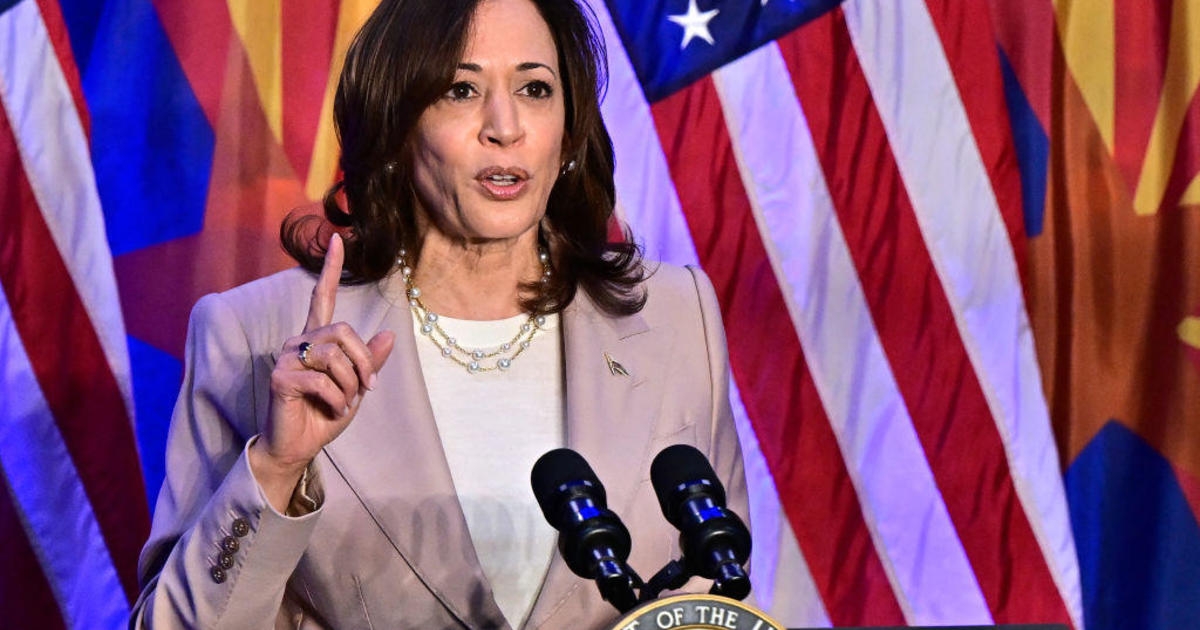Year of the Republican women: GOP adds record number of women to Congress
As the nation celebrates 100 years of women voting in the U.S., Americans are sending more women than ever to represent them in Washington — 135. Among them are a record number of Republican women, after the party faced devastating setbacks in 2018.
According to the Center for American Women and Politics, 32 GOP women will join the next Congress, surpassing the record of 30 Republican women sent in 2006. At least 24 Republican women so far will be headed to the House — including at least 13 new members — closing in on the party's 2006 House record of 25 women.
Republican Beth Van Duyne in Texas' 24th District declared victory after Democrat Candace Valenzuela conceded on Tuesday. In California's 48th, incumbent Democrat Harley Rouda has conceded to Republican Michelle Steel. Their wins would surpass the record of 25 Republican women elected to the House. CBS News has not yet called these races.
"The 2018 cycle was a story of Democratic success; this year we are seeing significant gains on the Republican side," said Debbie Walsh, director of the Center for American Women and Politics, in a statement. "Advances for women must come from both sides of the aisle if women are to achieve equal representation in Congress."
House Republicans exceeded expectations Tuesday night, unseating at least seven incumbent Democrats in competitive races, and women Republican candidates were the ones who flipped the seats in all but one contest. The winning candidates were Stephanie Bice of Oklahoma, New Mexico's Yvette Herrell, Michelle Fischbash in Minnesota, Maria Elvira Salazar of Florida, Ashley Hinson in Iowa, and in South Carolina, Nancy Mace.
"It's a hundred years since women's suffrage. And if women want to be in office, we want to see more women in office, women need to run," said Mace, who will be the first woman to represent the Palmetto State in Congress.
Mace said she thinks a lot of GOP women were inspired by what happened on the opposite side of the aisle two years ago. The surge in Republican women comes after the 2018 midterms ushered in a record number of women overall — but only a few were Republicans, raising red flags about representation in the party. Only 13 GOP women won seats in the House in 2018, and only 11 ran for re-election in 2020.
"The statistic that pops out in my mind is that there were more men named 'Jim' in the Republican caucus than there were Republican women," said Hinson, who won a tight race in Northeastern Iowa against a Democratic incumbent. "I think [the number of women representatives] changes the dynamic of the dialogue across the country about what the party looks like."
But the rise in the number of Republican women descending on Washington did not come without a concerted effort.
"Two years ago after the 2018 midterms, it was clear that the Republicans were facing a crisis level of Republican women in Congress," Elise Stefanik told CBS News. After that election, she launched Elevate PAC to identify and recruit women before the next primary season. At least thirteen of E-PAC's candidates have won their general election races and another six are leading in races that have not been decided.
"Republicans, we really shy away from the traditional identity politics. I'm a big believer that this is not identity politics, this is just focusing on finding the best candidates, the strongest candidates, who are also Republican women and making those investments early," Stefanik said.
Republican Leadership including House Minority Leader Kevin McCarthy and Congressman Tom Emmer, chair of the National Republican Campaign Committee, made recruiting a more diverse 2020 class a top priority, too. In total, 227 Republican women filed to run, and 94 made it to the general election ballot — both records for the party.
Former New Hampshire Republican Senator Kelly Ayotte is working with the Winning for Women super PAC, which was started after the 2018 elections and is dedicated to electing more Republican women.
"We support candidates throughout the entire process — from the primary process through a general election process, which having run for office myself and I think is really important," she said. "Our efforts are really focused on, number one, helping qualified women to run, make sure that they know that they're going to have the support and resources because you can't win elections without resources."
The House GOP-backed Congressional Leadership Fund stepped in to help fuel campaigns running low on cash, such as Bice's in Oklahoma's 5th District and Nicole Malliotakis' in New York's 11th. Compared to well-established groups like Emily's List, WFW had a much tighter spending budget. Ayotte said the group had to focus on "buttressing those races that just needed a little bit more to win." One example is in Iowa's 1st District, where the Women for Women Action Fund aired attack ads to support Hinson in a tight race against a Democrat incumbent. Hinson won by just under three points.
"This is a party that's seen an expanded tent under the Trump administration. We've seen more people come to the Republican Party. And I think that women are an important part of that expansion," said Hinson.
Herrell, who also beat an incumbent freshman Democrat, will be the first Republican Native American woman to represent New Mexico. Salazar, who unseated Democrat Donna Shalala in Florida's 27th District, will be the second Cuban-American woman elected to Congress. And Cynthia Lummis will become the first female senator to represent the state of Wyoming.
Hinson says that it's the relatable background behind every woman candidate that is "what's really remarkable about this class."
"A lot of my campaign was, 'Guess what? I have a family, too.' I'm a woman who's multitasking, being a working mother, my husband owns a small business, so we are feeling the same struggles and challenges that many other families are facing," she said. "So I think what it came down to is people want someone in Congress just like them. And that's exactly what this field of candidates did this cycle."



